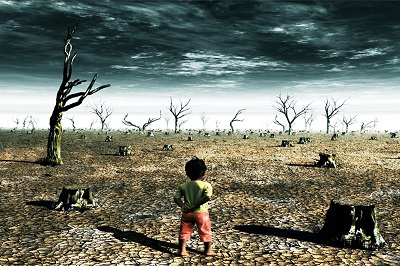Recent events have shown, as if it weren’t already apparent, how there are many among us who feel marginalised, or else exist on or beyond the bounds of “normal” society. If there were ever a good time and place to shed some artistic light on those people, it is now, in Edinburgh, in the midst of the world’s biggest arts extravaganza.
From its base at St. John’s Church on Princes Street, Just Festival has for many years been promoting diversity and social justice with a programme of events throughout August. This year the theme of the festival is “From The Edge”, a challenge to the way we perceive those who are on the brink of our sphere of experience, whether that be socially, politically, religiously, or because of their creative and artistic practice. And for this year, the festival will also be making use of the Quaker Meeting House, just of the Royal Mile.
Performance is naturally a big part of the festival, with a particularly strong world music programme. In fact, Manchester International Roots Orchestra cover most of the globe on their own, with a repertoire that includes Sufi chants from South Asia, Eastern European folk and African gospel, with jazz, hip-hop and classical thrown in for good measure. Christian Stejskal was born in Vienna, but travelled on pilgrimage to Ethiopia, spending time living with the Zabbaleen (“garbage people”) of Cairo. He tells that story through spoken-word, imagery and his magnificent violin playing. And although they’ll be familiar to many, the Taiko Drummers are always an enlivening spectacular.
There is dance too. Identity by Twisted Tails looks at how Scottish women express themselves through dance, more specifically in this case, varying styles of bellydance. Al-Rowwad’s Beautiful Resistance was designed as a non-violent response to the Palestinian situation. Through dance and music they seek to break the cycle of violence in that strife-ridden part of the world.
Beautiful Resistance: Alrowwad Centre for Culture and Arts from Amos Trust on Vimeo.
In terms of drama, Hotel Europa couldn’t be more timely. Motivated by the Europe-wide government-enforced policies of austerity, and starring a European cast, it asks “what would a different future for Europe look like?”
The drama programme also features the Death Pantomime, a tale “from the edge” of life and death, where two bodies in a funeral parlour recount their lives. It’s also part of Death of the Fringe, which we preview here, as are two talks at the Quaker Meeting House: Mystical Experiences at the End of Life? in which Professor Allan Kellehear of Bradford University discusses deathbed visions, and What Happens To Dead People’s Bodies? where Strathclyde University’s Dr Sally Paul discusses exactly that.
These are just two of a large programme of talks. Peter Tatchell might be the most familiar face among them, and he’ll be at the Quaker Meeting House to discuss what schools should teach pupils about sex. Senior Rabbi Julia Neuberger and Baroness Butler-Sloss will be among those examining the role of faith in public life in a series of free talks from the pulpit of St John’s. Racism is discussed in Laity Senghore’s talk Rainbow World, while poet Nadine Aisha will read from her debut pamphlet Still as part of her talk Women’s Stories, Women’s Survival.
Meanwhile, the Conversations series will see a different panel each evening tackle a key “from the edge” topic. Is a nomadic lifestyle incompatible with the 21st Century? Is Gaelic dying? Should all ideas be given a public platform? All these and more will be discussed by experts in their field.
The Wee Review is media partner for Just Festival, and will be bringing you reports back from events throughout August.
For the full Just Festival programme see www.just-festival.org
